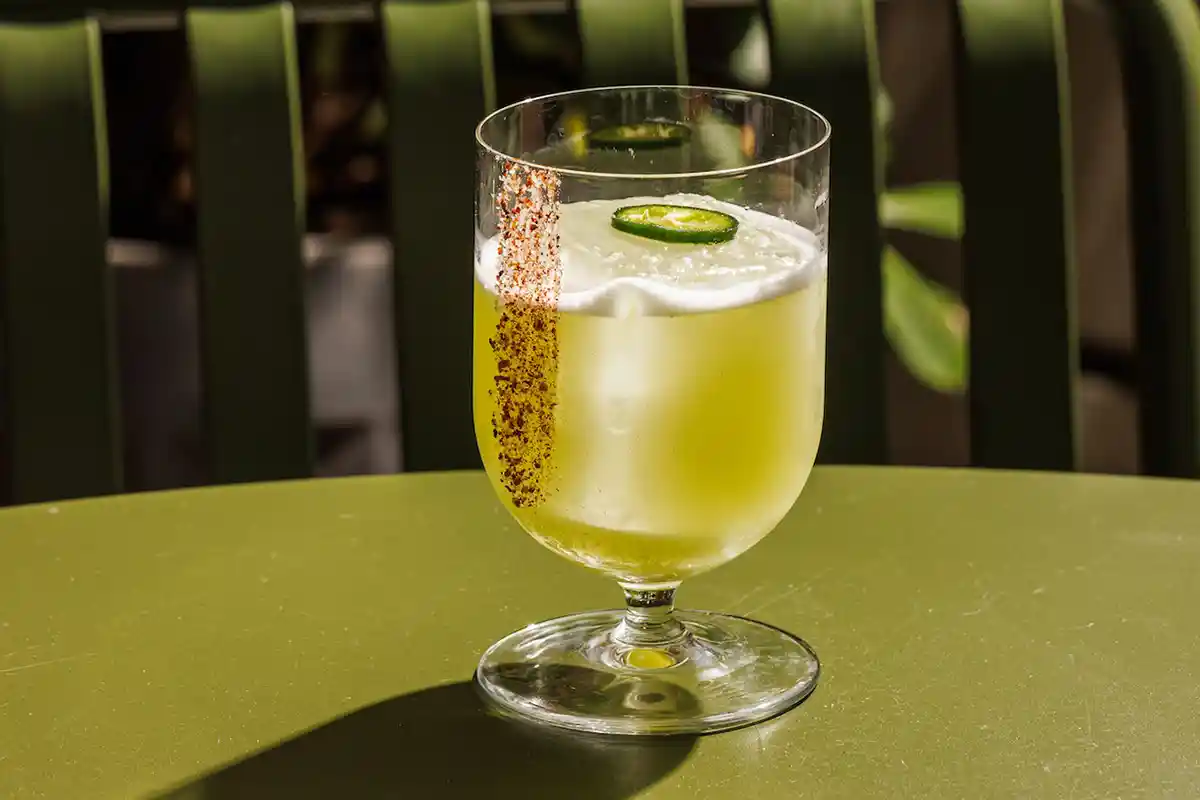In today’s fast-paced world, finding balance and joy in our lives has become increasingly important. People are seeking ways to improve their overall well-being and incorporate practices that promote physical, mental, and emotional health. One such avenue that has gained popularity is the consumption of mezcal, a traditional Mexican spirit. Mezcal not only offers a unique and flavorful drinking experience but also holds the potential to enhance wellness through its cultural significance, natural ingredients, and mindful consumption practices.
1. Introduction: The Pursuit of Wellness
In our quest for wellness, we continuously seek activities and practices that nourish our bodies, minds, and spirits. From exercise routines to mindfulness practices, the options are vast. One such avenue that has emerged is the consumption of mezcal, a distilled alcoholic beverage with roots in Mexican culture. This article delves into the world of mezcal and explores how it can contribute to our overall well-being, offering a unique and fulfilling experience.
2. Understanding Mezcal: A Brief Overview
Mezcal is a traditional Mexican spirit made from the agave plant. Unlike its close relative, tequila, which is produced exclusively from blue agave, mezcal can be crafted from various agave species, resulting in a diverse range of flavors. The production of mezcal involves a meticulous process that includes harvesting the agave, roasting the hearts of the plants, fermenting the sugars, and distilling the liquid. Each step is carried out with care and respect for the artisanal traditions passed down through generations.
3. The Cultural Significance of Mezcal
Mezcal holds deep cultural significance in Mexico. It has been produced and consumed for centuries and is often associated with celebrations, rituals, and community gatherings. Mezcal embodies a sense of connection to the land, history, and the spirit of the people. The traditional production methods and the appreciation for craftsmanship make mezcal not just a beverage but a symbol of cultural heritage and pride.
4. The Natural Ingredients of Mezcal
One of the appealing aspects of mezcal is its use of natural ingredients. The heart of the agave plant, known as the piña, is the main component used in mezcal production. Unlike many other alcoholic beverages, mezcal avoids the use of artificial additives and relies on the raw materials’ inherent flavors. This commitment to natural ingredients not only enhances the taste profile of mezcal but also aligns with the principles of wellness and mindful consumption.
5. Mezcal and Mindful Consumption
Mindful consumption is a key component of the wellness movement. It involves being present and intentional in our choices, including what we eat and drink. Mezcal provides an opportunity for mindful consumption through its rich cultural heritage, artisanal production, and distinct flavors. Taking the time to savor each sip, appreciating the craftsmanship and traditions behind mezcal, can bring a sense of mindfulness and joy to the drinking experience.
6. Mezcal and Physical Well-being
While moderation is crucial, mezcal can have potential physical health benefits when consumed responsibly. It is believed that mezcal contains certain compounds that can aid digestion, provide antioxidants, and support overall gut health. However, it is important to note that any potential health benefits should be balanced with responsible alcohol consumption and a healthy lifestyle.
7. Mezcal and Mental Well-being
Mental well-being encompasses our emotional and psychological health. Mezcal can contribute to mental well-being by offering a moment of relaxation and enjoyment. Sharing a mezcal cocktail with friends or engaging in mezcal rituals can create a sense of connection and foster positive emotions. It can serve as a reminder to slow down, appreciate the present moment, and find joy in the simple pleasures of life.
8. Mezcal and Emotional Well-being
Emotional well-being involves nurturing and expressing our emotions in healthy ways. Mezcal, with its cultural significance and social nature, can facilitate emotional well-being by creating an atmosphere of celebration, camaraderie, and shared experiences. It can evoke feelings of happiness, excitement, and a sense of belonging, helping individuals connect with their emotions and forge meaningful connections with others.
9. Mezcal and Social Well-being
Social well-being emphasizes the importance of relationships, community, and social interactions. Mezcal has a long-standing tradition of bringing people together, fostering connections, and celebrating shared experiences. Whether it’s a casual gathering with friends or a cultural festival, mezcal provides an avenue for socializing and strengthening bonds. It serves as a catalyst for conversations, laughter, and the creation of lasting memories.
10. Incorporating Mezcal into a Wellness Routine
To incorporate mezcal into a wellness routine, it’s essential to approach it with intention and moderation. Mindful consumption, as mentioned earlier, plays a vital role. Embrace the cultural aspects of mezcal, explore different varieties, and experiment with cocktail recipes that highlight natural ingredients and flavors. By treating mezcal as a mindful indulgence rather than a mere drink, it can become a part of a balanced and joyful wellness routine.
11. Mezcal Cocktails for Health and Happiness
Mezcal’s versatile flavor profile lends itself well to a variety of cocktails that can be enjoyed in moderation. Here are a few mezcal cocktail ideas that combine wellness-focused ingredients and the unique characteristics of mezcal:
- “Mezcal Mule with Fresh Ginger and Lime”
- Smoky Paloma with Grapefruit and Chili Salt Rim
- “Mezcal Mojito with Fresh Mint and Cucumber”
These cocktails can be customized to suit individual preferences while incorporating natural ingredients that contribute to overall well-being.
12. The Art of Pairing Mezcal and Food
Pairing mezcal with complementary flavors can elevate both the drinking experience and the culinary journey. Mezcal’s smoky and earthy notes can be enhanced by certain food choices. For example:
- Spicy dishes can amplify the complexity of mezcal’s flavors.
- Rich, savory foods can provide a contrast to mezcal’s smokiness.
- Citrus-based desserts can complement the natural sweetness of mezcal.
By experimenting with different pairings, individuals can discover their own preferred combinations that enhance the enjoyment of both mezcal and food.
13. Exploring Mezcal Rituals and Ceremonies
Mezcal has a rich history of rituals and ceremonies associated with its consumption. These practices often involve traditional methods of serving and drinking mezcal, such as using clay cups or participating in communal toasts. Exploring these rituals can deepen the appreciation for mezcal’s cultural heritage and add a sense of reverence to the experience.
14. The Role of Mezcal in Celebrations and Festivals
Mezcal plays a significant role in Mexican celebrations and festivals, where it serves as a symbol of joy, unity, and cultural identity. Events such as Day of the Dead and Cinco de Mayo showcase the vibrant traditions surrounding mezcal. Participating in these celebrations allows individuals to immerse themselves in the rich tapestry of Mexican culture and experience the profound connection between mezcal and collective happiness.
15. Conclusion: Embracing Mezcal for a Balanced and Joyful Life
Incorporating mezcal into our lives can be a delightful and meaningful way to enhance our overall well-being. From its cultural significance to its natural ingredients and mindful consumption practices, mezcal offers a holistic experience that nourishes the body, mind, and spirit. By embracing mezcal and its connection to wellness, we can find balance, joy, and a deeper appreciation for the simple pleasures that life has to offer.
FAQs
1. Is mezcal gluten-free?
Yes, mezcal is gluten-free since it is made from agave, a plant-based ingredient that does not contain gluten.
2. Can mezcal be enjoyed neat or is it best mixed in cocktails?
Mezcal can be enjoyed neat or mixed in cocktails, depending on personal preference. Both options offer unique drinking experiences.
3. Does mezcal have a high alcohol content?
Mezcal typically has an alcohol content ranging from 40% to 50% ABV (alcohol by volume), similar to other distilled spirits.
4. Is mezcal suitable for vegans and vegetarians?
Yes, mezcal is suitable for vegans and vegetarians as it is made solely from plant-based ingredients.
5. Are there different types of agave used in mezcal production?
Yes, mezcal can be made from various agave species, resulting in different flavor profiles and characteristics.
In conclusion, mezcal can be much more than just a spirit to be consumed. It can be a gateway to wellness, cultural appreciation, and joy. By embracing the traditions and mindful consumption practices associated with mezcal, individuals can find balance and enhance their overall well-being. So, why not raise a glass of mezcal to celebrate life and savor its diverse flavors? Cheers to finding balance and joy through the captivating world of mezcal!









